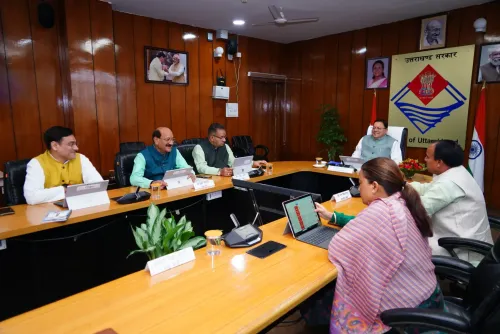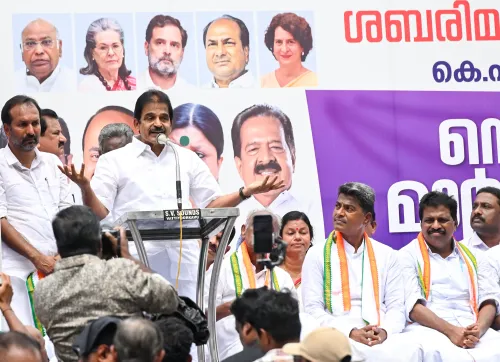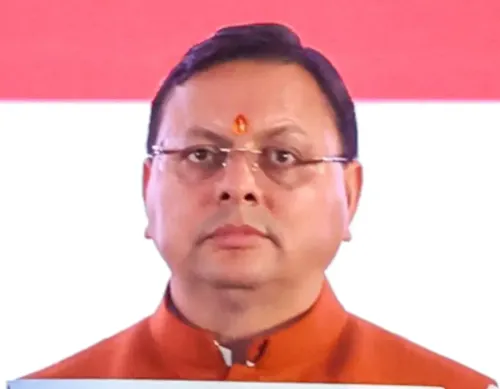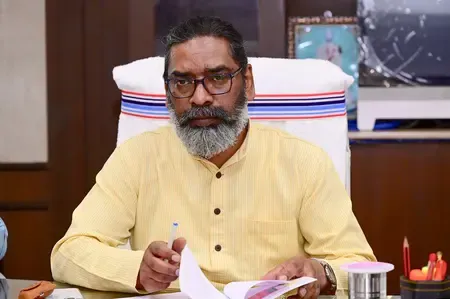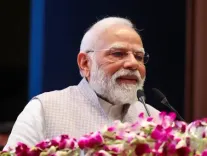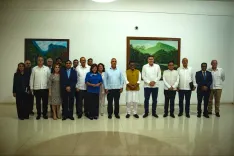Why is Sonia Gandhi Criticizing Modi's Silence on Palestine?
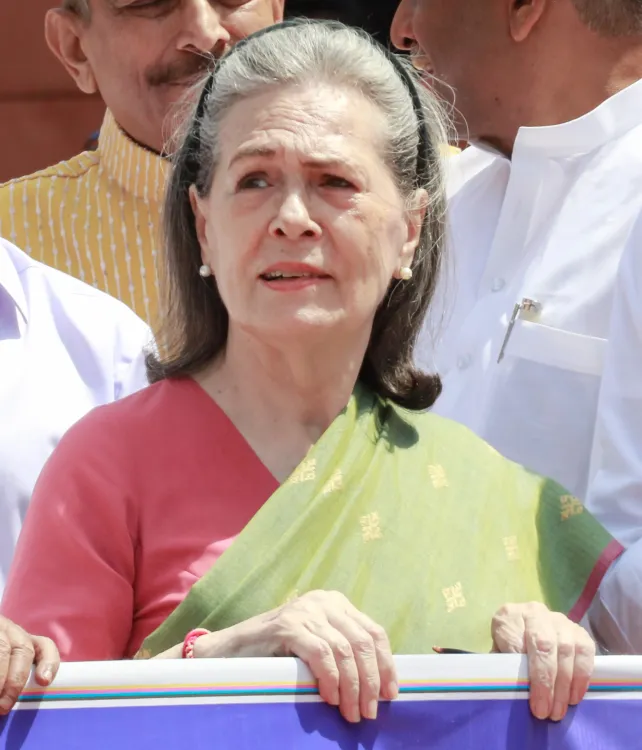
Synopsis
Key Takeaways
- Sonia Gandhi calls for India's leadership on Palestine.
- Criticism of the Modi government's silence on humanitarian issues.
- Over 55,000 Palestinian civilian casualties highlighted.
- Comparison made between Palestine's struggles and India's colonial past.
- Need for principled leadership in India's foreign policy.
New Delhi, Sep 25 (NationPress) Congress Parliamentary Party chairperson Sonia Gandhi has emphasized the need for India to take a leading role regarding the Palestine situation, condemning the government's approach as marked by a "deep silence" and an "abandonment" of both humanitarian principles and morality.
In an article published in The Hindu, she expressed that over the last two years, following the resurgence of hostilities between Israel and Palestine in October 2023, India has effectively withdrawn from its influential position.
Gandhi described the Hamas attacks on October 7, 2023, as brutal, yet characterized the Israeli military's response as "nothing short of genocidal".
She noted, "More than 55,000 Palestinian civilians have lost their lives, including 17,000 children. The infrastructure for housing, education, and healthcare in the Gaza Strip has been decimated, leading to a famine-like crisis as the Israeli military blocks essential food, medicine, and aid -- allowing only a trickle of assistance amidst overwhelming need."
According to Gandhi, one of the most appalling acts of cruelty has been the shooting of civilians seeking food.
She remarked that the global response has been sluggish, effectively legitimizing Israeli actions. However, recent recognitions of Palestine as a sovereign state by various nations represent a long-awaited shift from previous inaction.
The Congress leader called this development a pivotal moment and a reaffirmation of justice, self-determination, and human rights principles, but criticized India's ongoing silence.
"These actions are not mere diplomatic gestures; they are affirmations of the moral obligations nations have in confronting enduring injustices. Silence in today’s world is not neutrality—it is complicity. India’s voice, once steadfast in advocating freedom and human dignity, has become alarmingly muted."
While critiquing the current administration, she stated, "The Modi government's stance reflects a significant silence and a surrender of both humanity and morality. Its actions seem to be motivated more by the personal connection between the Israeli Prime Minister and Mr. Modi than by India's constitutional values or strategic interests."
Gandhi warned that "this form of personalized diplomacy cannot be the foundation of India's foreign policy. Such attempts in other regions—including the United States—have resulted in painful embarrassments in recent times. India’s reputation on the global stage cannot be reduced to the personal ambitions of any one individual, nor can it rely solely on historical achievements. It requires ongoing courage and a commitment to historical continuity."
She expressed her dismay that just two weeks prior, India not only entered into a bilateral investment agreement with Israel in New Delhi but also hosted its far-right Finance Minister, who has faced international backlash for inciting violence against Palestinian communities in the occupied West Bank.
Gandhi urged immediate action from the government, insisting that "India must view the Palestine issue not just as a foreign policy issue but as a reflection of its ethical and civilizational values."
She drew parallels between the struggles of the Palestinian people and India's fight against colonialism, stating, "Their hardship mirrors the challenges India faced during colonization—people stripped of sovereignty, denied nationhood, exploited for resources, and deprived of rights and security. We owe Palestine not just empathy but the courage to transform that empathy into decisive action."
The seasoned leader asserted that India's historical experience and commitment to human rights should empower it to advocate for justice without hesitation.
"The expectation is not to take sides in this conflict, choosing between Israel and Palestine. What is expected is principled leadership that aligns with the values that have long guided India and underpinned its independence movement," Gandhi concluded.

